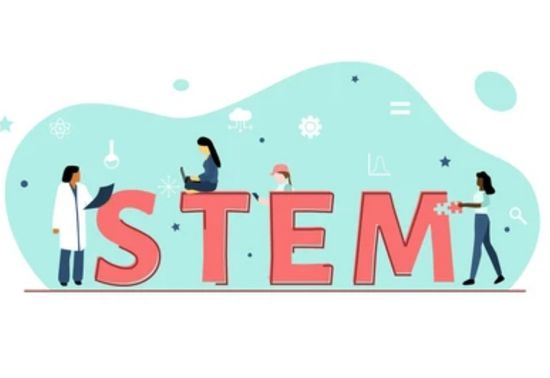Challenges Faced by Women in STEM And How To Address Them


Technology and innovation are the forerunners of development in India and the world. Education and progress in Science, Technology, Engineering, and Mathematics (STEM) are essential components of this development in terms of overcoming challenges across sectors and ensuring their growth and expansion.
Read: Digitally Empowered Teachers Are Unlocking India’s Potential On A World Stage
However, as India stands at the precipice of becoming a global power, one must acknowledge that to move forward in any field, equal participation by women is imperative. Women in the STEM segment, until recently, faced severe hurdles in gaining access to equal opportunities, but the situation is gradually improving, and women are participating in the field in large numbers. This article discusses how bringing more women into STEM will contribute to the greater development of our economy.
Check Out: Women Entrepreneurs Who Are Disrupting the Indian Startup Ecosystem
The Situation At Present
Statistics suggest that over 43% of STEM graduates were women. The All India Survey on Higher Education Report estimates that over 10,56,095 women have enrolled in graduate, post-graduate, and Ph.D. courses in the field, as of 2019-20. The Science Technology and Innovation Policy were launched to increase this number by 30% by 2030. The policy also aims to revise the sectoral strategies and priorities of the industry to make it more inclusive, decentralized, evidence-based, and expert-driven. The Scopus database also suggests that women have authored one in three research papers published in India. Estimates also indicate that India is second in the world in terms of the number of women CEOs in the tech sector.
Know More: ‘I call myself a writer because of YIF,’ says Nona Uppal, Alumni of Young India Fellowship
These developments paint an optimistic picture for women in STEM. Women in India are breaking the glass ceiling and excelling in all realms of STEM. Women like Roshni Nadar, the chairperson of HCL, Sharmistha Dubey, the CEO of Match Group, and Revathi Advaithi, CEO of Flex, are exemplary role models who have changed the face of the industry in modern times. However, more must be done to ensure fuller participation and a gender-friendly workspace. Several shortcomings need to be countered if we hope to achieve equitable and balanced development.
Read: Study Abroad: Calcutta girl, Arunima Ghosh, shares her journey in the UK
What Does The Future Hold?
The Indian government has taken several laudable initiatives to encourage women to join the STEM bandwagon and achieve milestones. For instance, India’s participation in the Gender Advancement for Transforming Institutions project and the launch of Consolidation of University Research for Innovation and Excellence played a pivotal role in paving the way for women in STEM. However, more must be done to push women to reach their full potential.
Also Read: ‘I recommend people to have a side hustle along with a 9-5 job,’ says Hustle Rani
Women scientists and young achievers are also being given recognition through women excellence awards distributed by SERB. National Women Bioscientists Awards are also accorded to senior researchers in the field of biotechnology for their contribution. Many companies today are incorporating policies like flexible work timings, provision of daycare, and relaxation of age limits to encourage women further to participate in the STEM field. Learning platforms are organizing workshops and seminars to provide women with upskilling and reskilling opportunities, where they can learn by interacting with recognized women role models.
Check Out: Life of a Law Student by Sampurna Mukherjee
Although experts in the field of psychology have repeatedly suggested that there is no significant difference in the aptitude for STEM subjects between men and women, the participation of women in these fields remained low for a decade. However, the industry has come a long way from that, and today women are not only entering the STEM fields but are leading major companies and corporate houses in the industry. This has been enabled by the hard work and determination of these women, changes in the workplace policy, and deploying more financial and human resources for effective training of these women in technologies like AI and ML.
About The Author
Sonya Hooja, Chief Operating Officer and Co-founder at Imarticus Learning play a crucial role in developing and implementing business strategy, directing business development, and recruiting top talent. In her career of over 12 years, she has been involved in strategy development and project management roles across diverse industries such as financial services, education, tourism, the public sector and pharmaceuticals. In 2012, she co-founded Imarticus Learning along with Nikhil Barshikar with an aim to make aspiring professionals in the financial services and analytics domain fully equipped with the necessary skills to excel in their careers, realising that professional skill development and training was the ideal solution to address India's workforce shortcomings.